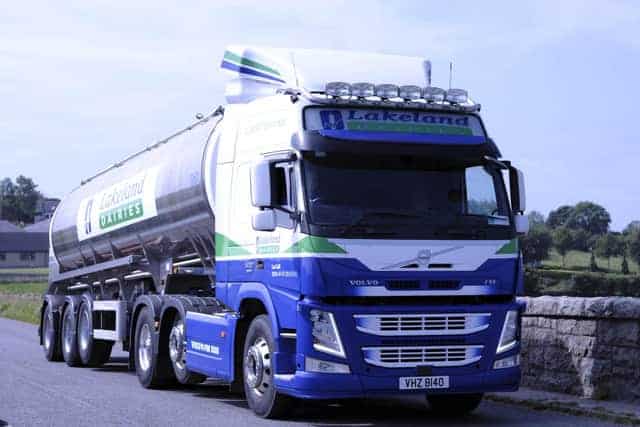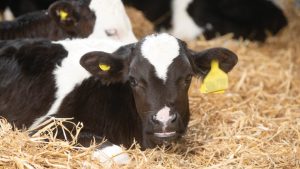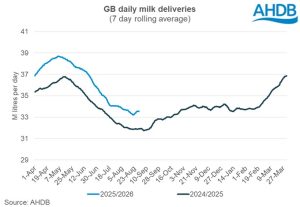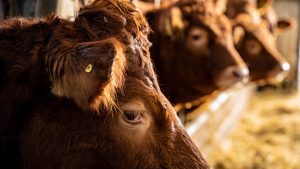
“And this momentum should continue into quarter one of 2024,” he added.
“World dairy markets are very much supply: demand driven. Large stocks of product built up during the latter part of 2022. And this product has to be brought through the system.”
According to Kelly margins have tightened dramatically on dairy farms around the world.
“Output will fall in response to this,” he continued.
“And it is under these circumstances dairy prices will respond in a positive manner. China is not engaging with global milk markets to any significant degree at the present time.
“However, if this scenario were to change, it would add significantly to the global demand for dairy products.”
The Lakeland representative is very aware of the fact that margins have been squeezed significantly on dairy farms right across Northern Ireland since the beginning of the year.
The co-op has dropped its farmer-price over each of the last four months.
“Maintaining the economic sustainability of our farmer members is the co-op’s number one priority,” Kelly commented.
Lakeland Dairies had a major presence at this week’s Balmoral Show. The business currently processes 50% of Northern Ireland’s total milk pool.
Significantly, Kelly views the ongoing economic viability of dairy farms in Northern Ireland as the cornerstone of a sustainable future for the entire milk sector.
“This fundamental point must be fully recognised and accepted by everyone.”
Specifically, where climate change is concerned, Kelly believes that the matter comes down to one fundamental factor: the amount of carbon required to produce one litre of milk.
And securing improved efficiency levels on local dairy farms and processing facilities will act to drive this figure down.
He continued:“Irish dairy farming has a tremendously positive story to tell: our use of grass and our unmatched expertise in managing dairy cows well.
“The world’s population is set to grow significantly over the next decades. Demand for high quality protein will strengthen in line with this.
“And the Irish dairy industry is perfectly placed to meet this demand. Only 7% of the milk produced globally is traded internationally.
“In total contrast, almost 95% of the dairy products manufactured in Ireland are destined for export. And we can build on all of this for the future.”
Lakeland Dairies collects over 2bn litres of milk from 3,200 farm families across 16 counties in Northern Ireland and the Republic of Ireland.
Last year saw the co-op’s revenues increased by 45% to €1.9bn across its four operating divisions of Food Ingredients, Foodservice, Consumer Foods and Agribusiness, up by €590m on the prior year figure of €1.3bn.
This yielded an operating profit of €32.5m, up by €4.3m (+15%) and EBITDA (Earnings before Interest, Tax, Depreciation and Amortisation) of €60.2m, which increased by €4.8m.
During the year in question, the business distributed €1.1bn in payments to milk supplying farms.
Colin Kelly took up the position of Lakeland Dairies’ CEO at the beginning of this year.
He had previously worked with Ornua, where he held a range of senior finance and general management positions.
Before joining Ornua, he trained as a chartered accountant with Deloitte. A native of Lusmagh, Co. Offaly, he is an Accounting and Finance graduate of University of Limerick and is a fellow of the Institute of Chartered Accountants in Ireland.




















